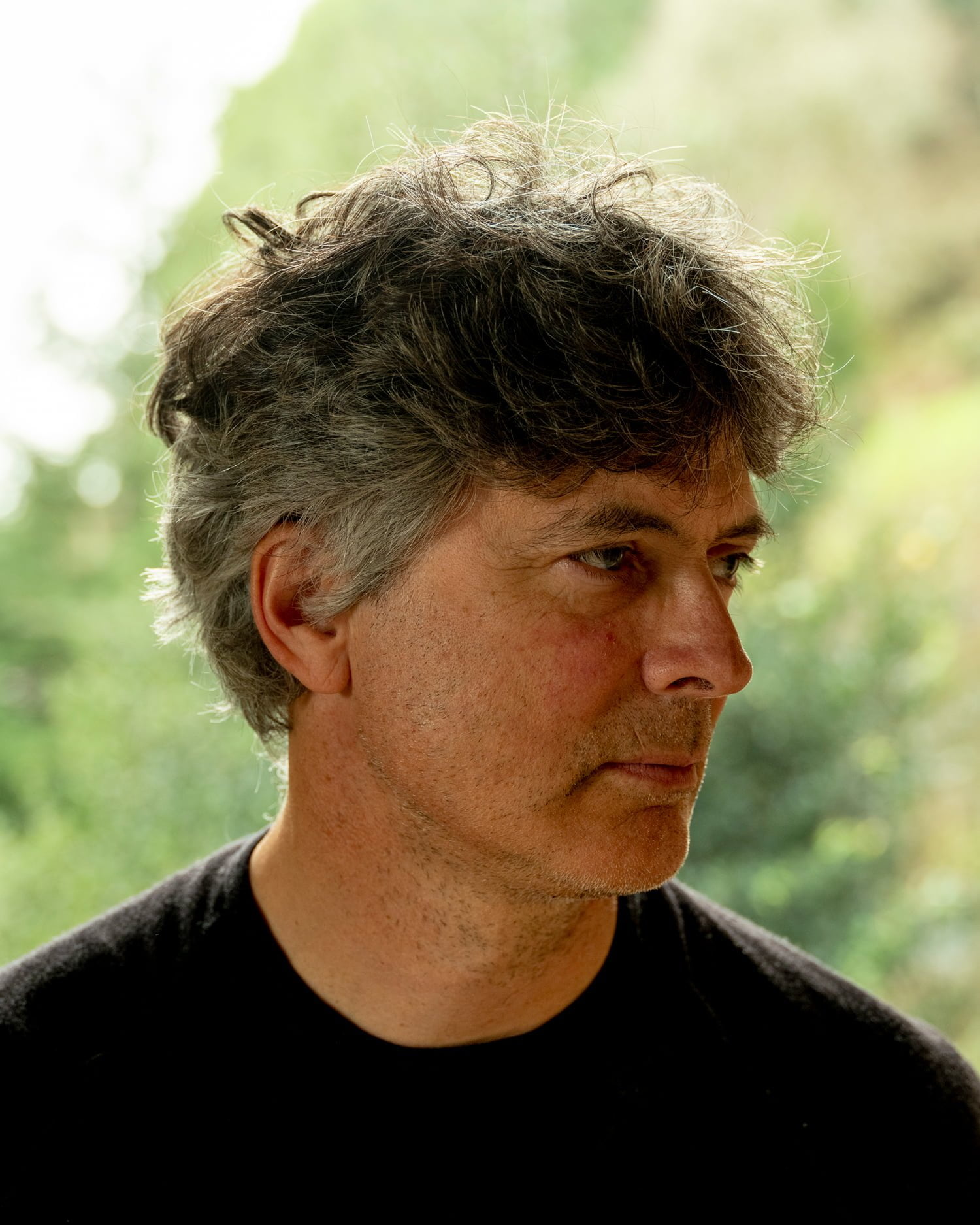He’s best known for starring as a nerdy oddball in The Office. With his latest book, Rainn Wilson is chasing a grander ambition: to get the world back in touch with its spiritual side, so we can overcome global threats like the climate crisis.
Stop burning fossil fuels. Eat less meat. Elect better leaders. All important steps in the fight against climate change. But according to Rainn Wilson, not enough. Not even close.
Wilson believes that solving this crisis – among others – requires us to go deeper. It requires us to realize that “we are not human beings having a spiritual experience, we are spiritual beings having a human experience”. That’s why, in his new book, Wilson is calling for nothing less than a “spiritual revolution”.
At this point you might be wondering, who is this person unveiling their grand treatise on the destiny of humanity? Well, if you don’t know Rainn Wilson’s name, you’ll likely recognize him from The Office, where for seven seasons he played Dwight, the officious nerd who yearned to be seen as the alpha male.
Wilson concedes that, for readers who remember him as Dwight, it probably “makes zero sense” to find him advocating for a great spiritual awakening. Which is why his book, Soul Boom, delivers its radical message in a tone that is neither judgy nor preachy, but frequently very funny – “irreverently reverent”, as Wilson puts it.

Rainn Wilson has appeared in TV shows including The Office (pictured), Six Feet Under and Rainn Wilson and the Geography of Bliss. He is the co-founder of Climate Basecamp, which uses culture to change the conversation around climate change, and recently portrayed an exasperated scientist in a climate-themed Game of Thrones spoof. His latest book is Soul Boom: Why We Need a Spiritual Revolution. Photo: NBC / Paul Drinkwater

The book began as a Covid lockdown project, as Wilson felt surrounded by “pandemics” and contemplated what it would take to fix them: racism, sexism, inequality, nationalism, materialism, and the “granddaddy” of them all: climate change. “We need to really deeply reimagine our systems based along spiritual lines,” he tells Imagine5, when we meet after a speaking engagement.
For Wilson, 58, living a spiritual life is not the same as joining a religion, or endorsing whichever New Agey fad is hottest right now. When he uses the word spirituality he’s talking about big-picture stuff we can all recognize: our compassion for each other, our affinity with the natural world, and our fascination with the big questions of life and whatever comes after it. He’s not here to tell you what to think, he’s here to tell you to think. And feel. And act.
Personally, Wilson is a follower of the Baha’i faith – but don’t worry, the book is no recruitment tract. In keeping with the Baha’i belief that all faiths open different windows on the divine, Soul Boom draws insights from numerous religious traditions (as well as touching on Wilson’s belief in aliens, who he pictures looking down on Earth’s self-inflicted climate crisis and thinking, “WTF?”).
Imagine5 volume 4 is here.

Cover star Madame Gandhi on the sounds of the Antarctic, free climber Alex Honnold reveals his biggest challenge yet, actor Rainn Wilson embraces his soulful side and much much more!
Starting at 7,- plus shipping
Get your copy nowThe great mystery
One idea that made a particular impression on Wilson as a depressed, spiritually lost young man is the Lakota Sioux concept of Wakan Tanka, a sacredness that resides in everything, often translated as ‘the great mystery’. He says: “To this day, I don’t know if I believe in God – I have a hard time wrapping my head around it. But I definitely believe in Wakan Tanka, in the great mystery.”
It’s an example of why spirituality deserves a bigger place in the conversation about the climate, Wilson believes. “For century after century after century, spirituality was indistinguishable from nature itself,” he says. “I just think that’s crucial for people to know. If we go back tens of thousands of years, humans understood spirituality through the natural world. Look at Shinto in Japan, look at Native American beliefs… There were gods sometimes, but if you go further back than that, gods were known by the sun. They were known by the moon. They were known by gravity, by the seasons, by life and death, by wind. And nature was treated with respect and love and fear and interwoven into daily life.”


“So in a lot of ways, because we’re not having a spiritual conversation regarding climate, we’re leaving out tens of thousands of years of human evolution where planet Earth, Mother Earth, was sacred, and we’ve lost that sense of the sacred. And this is one of the reasons that the climate has gotten so bad. You can look at [the climate crisis] from a technological or materialist standpoint and say, well, we’ve just been dumping too much CO2 into the atmosphere, and we have. But why are we doing that? Why do we view planet Earth as something that we can suck resources from and spit the waste back out? How did we get to that point? And would it be possible for us to be humble enough to learn from Indigenous practices and beliefs that center human life and community in and around nature?”
Where no one has gone before
It’s easy for Wilson to picture the kind of future society he dreams of, because somebody already made a TV show about it. It’s called Star Trek. Far from just being about aliens and spaceships, Star Trek presented a world where “they’ve solved income inequality, they’ve solved racism, they’ve solved sexism. They’re able to balance nature and technology. And humanity is then able to put all of its attention into boldly going where no man has gone before and seeking out new life and new civilizations. And I view that as a very spiritual story.”
“I have had to work very hard to bring hope and joy to who I am as a person”

If you expected the guy who played Dwight to be snarkier and more cynical, Wilson confesses that deep down, he is. The wide-eyed, earnest demeanor of the Wilson whose voice narrates Soul Boom, has been hard-won. His unsettled and traumatic childhood led to mental health struggles and addiction in adulthood, and his natural tendency, he says, is still to be “pessimistic, dour, judgmental”. “But that hasn’t served me,” Wilson says. “I have had to work very hard to open my heart… to bring a kind of hope and joy to who I am as a person.”
It shows. These days, Wilson tells me, he lives in the hills of California with his wife, Holiday, two rescue guinea pigs, two rescue pitbulls, two Vietnamese potbellied pigs, a peahen, a donkey named Chili Bean and a zonkey named Derek. What’s that if not a life of intentional hope and joy?
Wilson says: “I think that instilling hope and fostering joy is one of the most rebellious acts that someone can take today. I think… the forces of darkness want us to be pessimistic and cynical, because then we’ll sit on our couches and we won’t do anything. Yeah, I think to be really punk rock in this day and age isn’t to have, like, safety pins in your cheek. It’s to provide hope and joy and inspiration.”

The first step is admitting you have a problem
So what do we do with that hope? How can those concerned about climate change help usher in the spiritual revolution that Wilson believes is crucial to overcoming it? He doesn’t have the whole answer to the question, but he believes a good first step would be to snap out of our collective denial. He recalls the childhood memory of his uncle getting arrested for drunk driving, and the belated admission of the fact that he needed help to stop drinking: “I’ll never forget the feeling in the family when people faced the music of an alcoholic in the family, and the denial that had been going on for years couldn’t go on anymore… And I hold that as a kind of a metaphor that humanity is in very serious denial about climate change. It’s hard to look at. And we kind of do the same: sticking our fingers in our ears and saying la la la.”
But isn’t there a catch here? After all, the family only rallied round once the uncle got arrested. And, come to think of it, the backstory to Star Trek’s shimmering utopia was a devastating war. Will it take that kind of shock for the world to turn the page on climate change?
That’s really up to us, Wilson says. “There’s a saying in Alcoholics Anonymous: if you want to hit bottom, stop digging.”
Soul Boom: Why We Need a Spiritual Revolution by Rainn Wilson is out now from Hachette.
About Imagine5
We are storytellers inspiring you to live a planet-friendly life. Through our stories we shift perspectives and help you see that sustainable change is already underway. Sparking imagination that leads to action, creating a shift to sustainable behavior as the norm. It’s happening.
Read moreCARING FOR YOURSELF

CULTURE MEETS CLIMATE



















